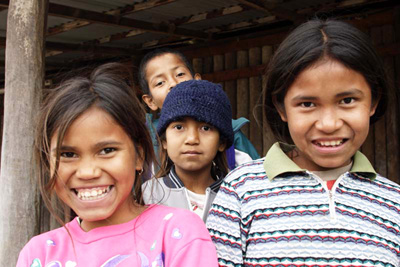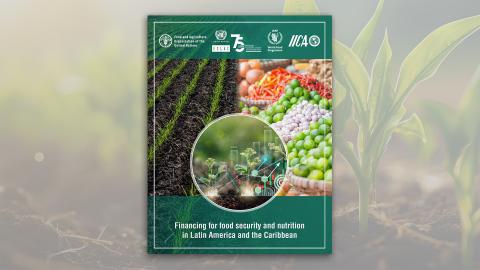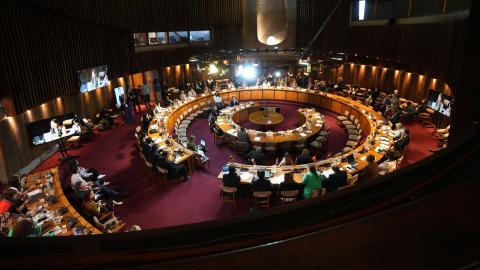News
(27 December 2010) Conditional transfer programmes (CTPs) operate in 18 of the region's countries and benefit over 25 million families, which represents around 113 million people (or 19% of the population of Latin America and the Caribbean), according to data provided by ECLAC.
The Economic Commission for Latin America and the Caribbean presented the Database of non-contributory social protection programmes in Latin America and the Caribbean, which provides detailed information on the various components of conditional transfer programmes in the region's countries, as well as data on expenditure, coverage and the amounts involved in the cash transfers.
According to ECLAC, conditional transfer programmes are an important social policy tool for combating poverty. They are non-contributory mechanisms that seek to increase families' level of consumption by means of cash transfers, thus reducing poverty in the short term, as well as strengthening the human development of family members to break the intergenerational reproduction of poverty.
The database shows that average spending on conditional transfer programmes represents just 0.40% of GDP in the region's countries, despite their broad coverage.
Those programmes with the highest number of beneficiaries in absolute terms are Bolsa Família (family grant) in Brazil (52 million people - almost half of all CTP recipients in the region), Oportunidades (Opportunities) in Mexico (27 million people) and Familias en Acción (Families in action) in Colombia (12 million).
The Bono de Desarrollo Humano (Human development voucher) in Ecuador is the programme that covers the largest proportion of a country's population (44%).
The most recently implemented programmes are the Asignación Universal por Hijo para Protección Social (Universal social protection benefit for each child) in Argentina, which since 2009 has incorporated the beneficiaries of the Families for Social Inclusion Programme, and the "Juana Azurduy de Padilla" mother-and-child voucher in Bolivia.
In Honduras, the "Bono 10.000" is an annual transfer of 10,000 lempiras (around 500 dollars), which in 2010 was added to the Family Benefit Programme, with a view to improving the education, health and food conditions of extremely poor households with children and adolescents.
According to the ECLAC report Social Panorama of Latin America 2010, presented in November, conditional transfer programmes helped to lessen the impact of the economic crisis and reduce inequality, along with the rise in labour income. ECLAC forecasts that poverty will fall by 1.0 percentage points and extreme poverty by 0.4 percentage points in 2010 compared with 2009.
The database of conditional transfer programmes was created as part of a project on the sustainability of transfer programmes with co-responsibility, which is being implemented by ECLAC in conjunction with the German Agency for Technical Cooperation (GTZ) and funded by the Federal Ministry for Economic Cooperation and Development (BMZ). The Inter-American Social Protection Network (RIPSO) of the Organization of American States (OAS) also collaborated on data verification.
The Database of non-contributory social protection programmes in Latin America and the Caribbean is available on the ECLAC website by clicking on the link.
For further details, please contact the ECLAC Public Information and Web Services Section. E-mail: dpisantiago@cepal.org; telephone: (56 2) 210 2040.



